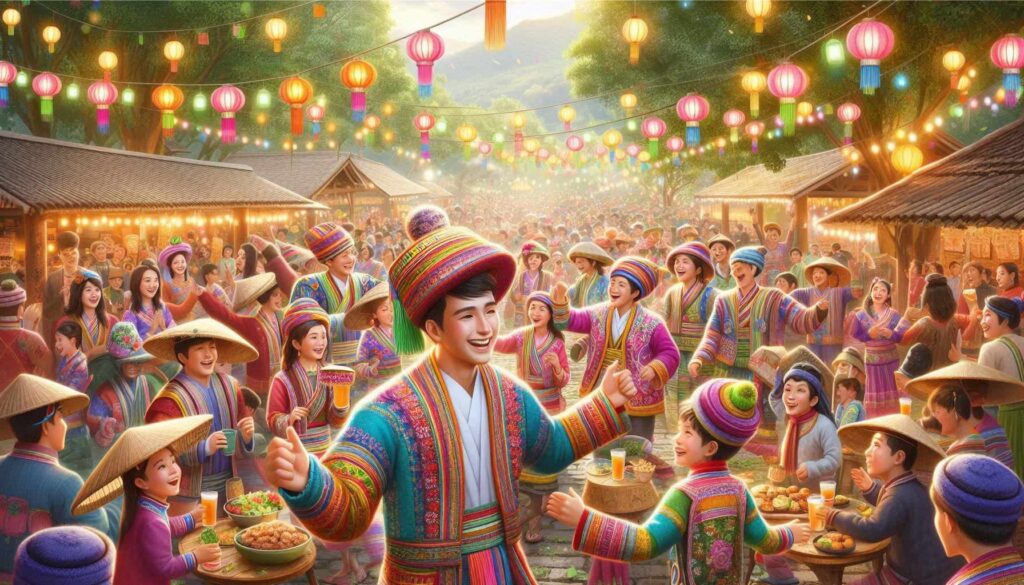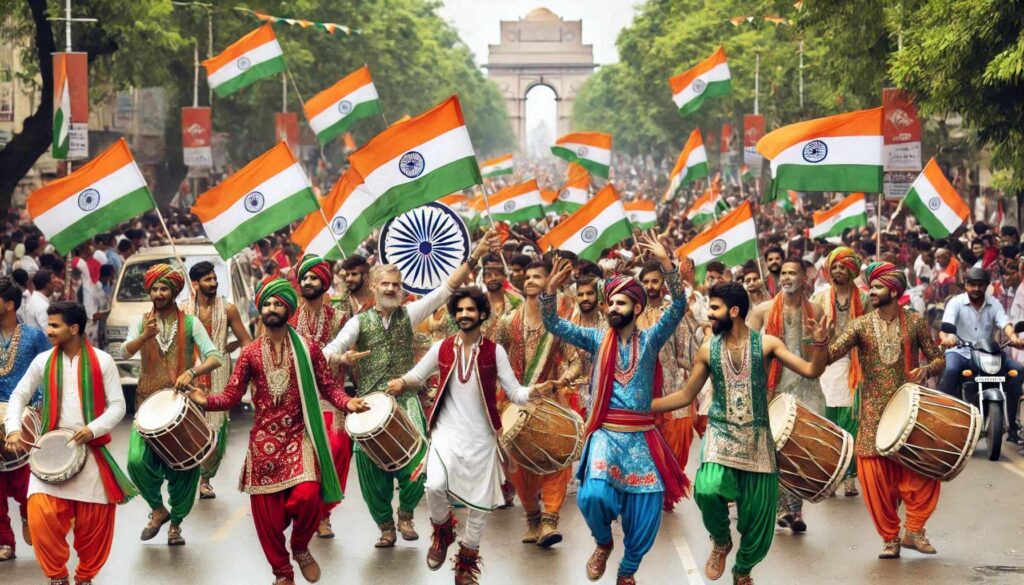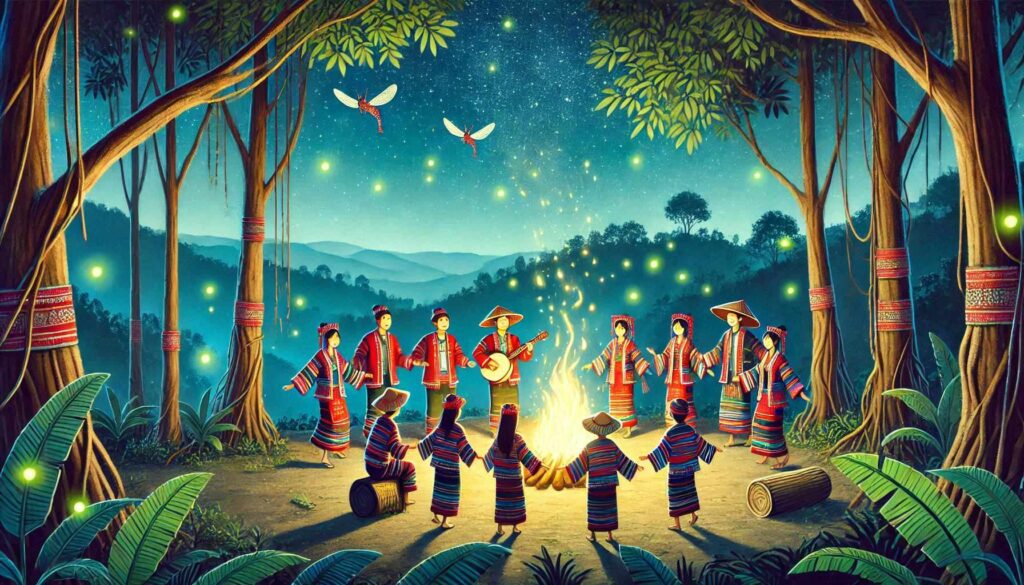Festivals in Mizoram in August 2025: Celebrations, Rituals, and Cultural Significance
Introduction
Mizoram, a beautiful state in Northeast India, is rich in tradition and culture, with festivals serving as an essential part of its vibrant community life. The festivals in Mizoram are deeply rooted in the agricultural calendar, religious beliefs, and the celebration of nature. In August, the state hosts a blend of harvest festivals, Christian observances, and community gatherings that embody Mizo culture and spirituality. This content will explore the various festivals that take place in Mizoram during August 2025, focusing on the rituals, traditions, and cultural significance of each celebration.
Read More About Hindu Philosophy
Key Festivals in Mizoram During August 2025
1. Thalfavang Kut Festival (August 2025)

- Background: The Thalfavang Kut festival is one of the most significant celebrations for the Mizo people. Traditionally celebrated after the harvest season, it honors the hard work of the farmers and the bountiful crops. While the festival is mainly celebrated in the autumn, the preparation for Thalfavang Kut begins in August. The festival has agricultural significance, offering thanks to nature and the gods for the successful harvests.
- Rituals and Traditions:
- Harvest Preparations: In August, the community prepares for the upcoming harvest by conducting prayers and rituals to ensure a good crop yield. This includes offerings to the Earth and deities that protect the agricultural lands.
- Dance and Music: Folk dances, especially Cheraw (bamboo dance), are practiced in August. The dances are an essential part of the festival, symbolizing joy, unity, and thanksgiving for the bountiful harvest. The rhythmic dance involves synchronized movements around bamboo sticks that make a unique clicking sound, representing the harmony between humans and nature.
- Feasting and Prayers: On the day of the festival, villagers come together for feasts, which include rice, meat, vegetables, and rice beer. The meal symbolizes the community’s bond and the collective sharing of nature’s bounty. Prayers are offered for the health and prosperity of the people.
2. Independence Day (August 15, 2025)

- Background: Like the rest of India, Mizoram celebrates Independence Day on August 15 every year. This national festival is marked with patriotic fervor, honoring the country’s independence from British rule in 1947. In Mizoram, the day is also a reflection of the state’s historical journey and its unique cultural identity.
- Rituals and Traditions:
- Flag Hoisting and Ceremonies: Independence Day in Mizoram is marked by flag-hoisting ceremonies in schools, government offices, and community centers. The Mizo people, alongside other Indians, sing the national anthem and raise the flag with pride and respect.
- Cultural Programs: In Mizoram, the day is not just about national pride but also about showcasing Mizo culture. Cultural programs featuring traditional Mizo songs, dances, and dramas are organized, with performances highlighting the history of the state and its people.
- Community Gatherings: Families and friends gather to celebrate with meals and social events. Special dishes are prepared, and rice beer is often shared in communal settings, symbolizing unity and togetherness.
3. Lushai New Year (August 2025)

- Background: The Lushai New Year is another important festival celebrated by the Mizo people. It marks the beginning of a new year according to the traditional Mizo calendar. While the timing of the celebration can vary, in August, preparations begin for this significant cultural event.
- Rituals and Traditions:
- Offerings to the Gods: Before the new year begins, offerings are made to the village deities to seek blessings for prosperity and happiness in the coming year. These offerings include fruits, rice, and other seasonal produce.
- New Year Feast: The Lushai New Year is celebrated with a grand feast that involves traditional Mizo foods, such as rice, meat, fish, and vegetable dishes. The feast is an important aspect of the celebration, bringing together family and friends in a spirit of joy and gratitude.
- Traditional Dances: As part of the celebration, people gather for traditional dances, such as Cheraw and the bamboo dance. These dances are not just a form of entertainment but a ritualistic expression of joy and cultural identity. The dances are performed with colorful traditional attire, creating a visually stunning spectacle.
4. Sunday Services and Christian Observances (August 2025)
- Background: Christianity has significantly influenced the culture and festivals of Mizoram, with a large majority of the population being Christian. Sunday services are central to the spiritual life of the Mizo people, and religious observances in August are a vital part of the community’s life.
- Rituals and Traditions:
- Sunday Worship: Christian Mizos gather every Sunday for worship, which includes singing hymns, prayers, and Bible readings. August sees heightened participation in these services, especially with a focus on gratitude for the blessings received during the year.
- Community Prayers: Special prayer meetings may be held during August to seek blessings for the community and individuals. These services often include sermons, hymn singing, and fellowship meals.
- Feasts and Charity: Church services are often followed by communal feasts, where families and communities come together to share food. Charity and helping those in need are central themes during these observances, as the Mizo people believe in sharing their blessings.
Cultural Significance of August Festivals in Mizoram
A Time for Unity and Gratitude
The festivals in August, such as Thalfavang Kut, Independence Day, and Lushai New Year, are deeply embedded in the Mizo culture. They emphasize gratitude for nature, the land, and the community’s strength. Whether it’s celebrating the harvest, marking the beginning of a new year, or honoring national freedom, the people of Mizoram use these festivals to reaffirm their ties to their heritage, their land, and each other.
Preservation of Mizo Traditions
Through these festivals, the Mizo people maintain a connection to their past, preserving the traditional dances, songs, and rituals that have been passed down through generations. The role of elders in passing on these traditions is crucial, as they teach younger generations the importance of cultural practices and rituals. These celebrations also reinforce the collective identity of the Mizo people, especially in a state that has seen a significant Christian influence.
Spiritual and Religious Expressions
The spiritual aspect of these festivals cannot be overlooked. Whether it’s through offering prayers during harvest festivals or attending church services, religion plays a central role in Mizo life. The blending of indigenous beliefs with Christianity creates a unique religious landscape where festivals are not only times for social gathering but also for seeking divine blessings.


